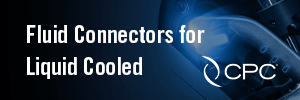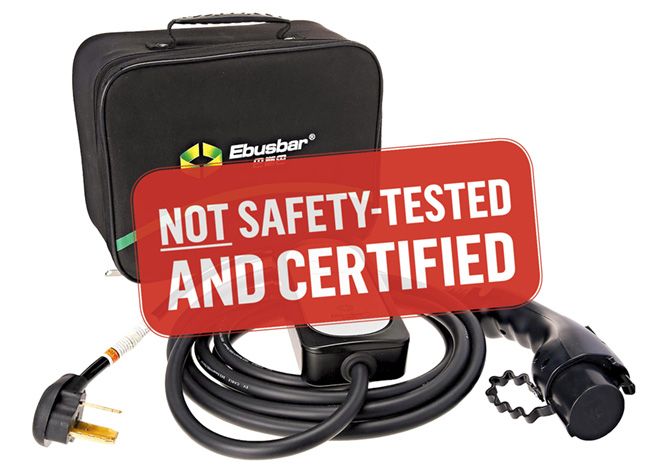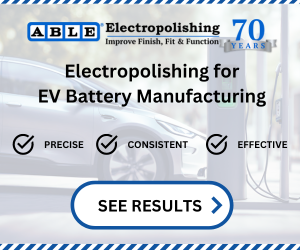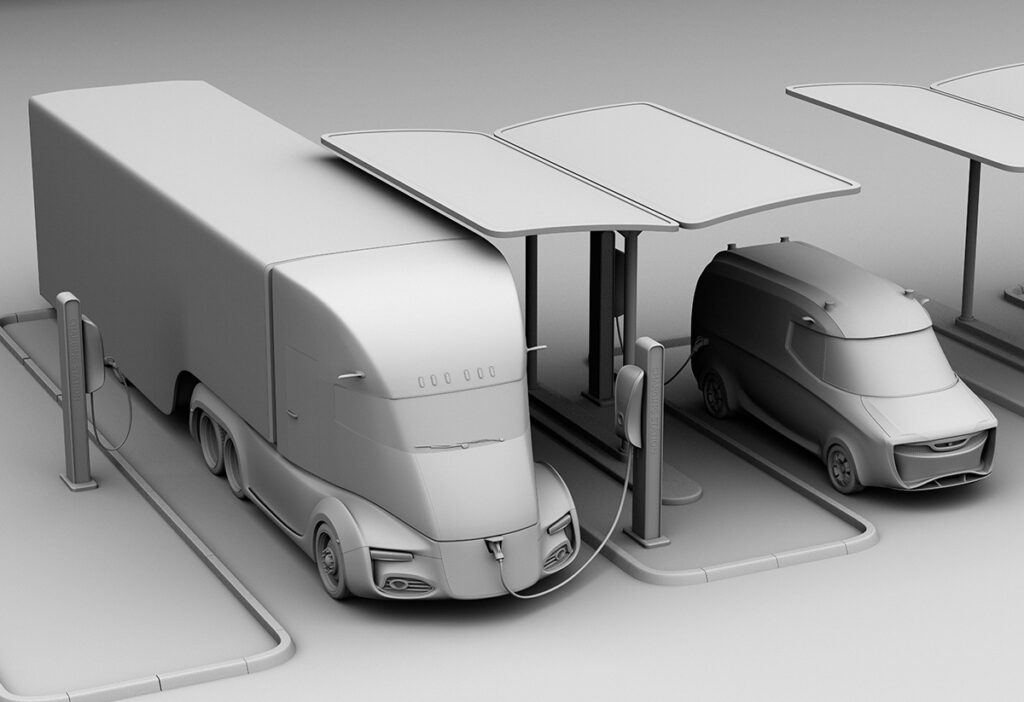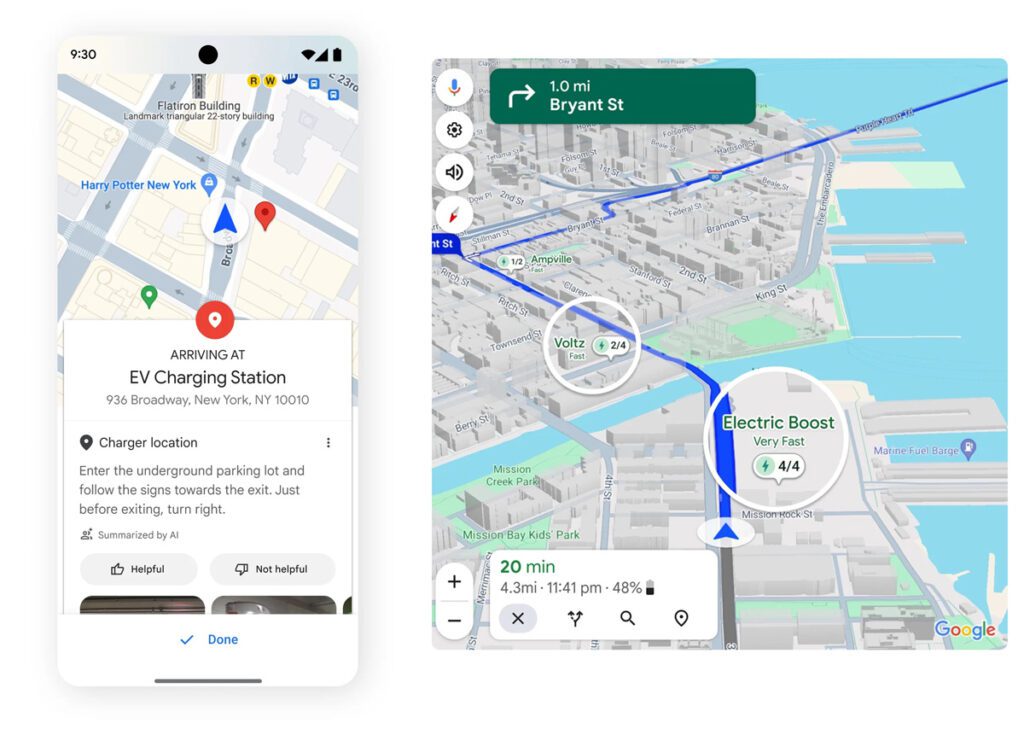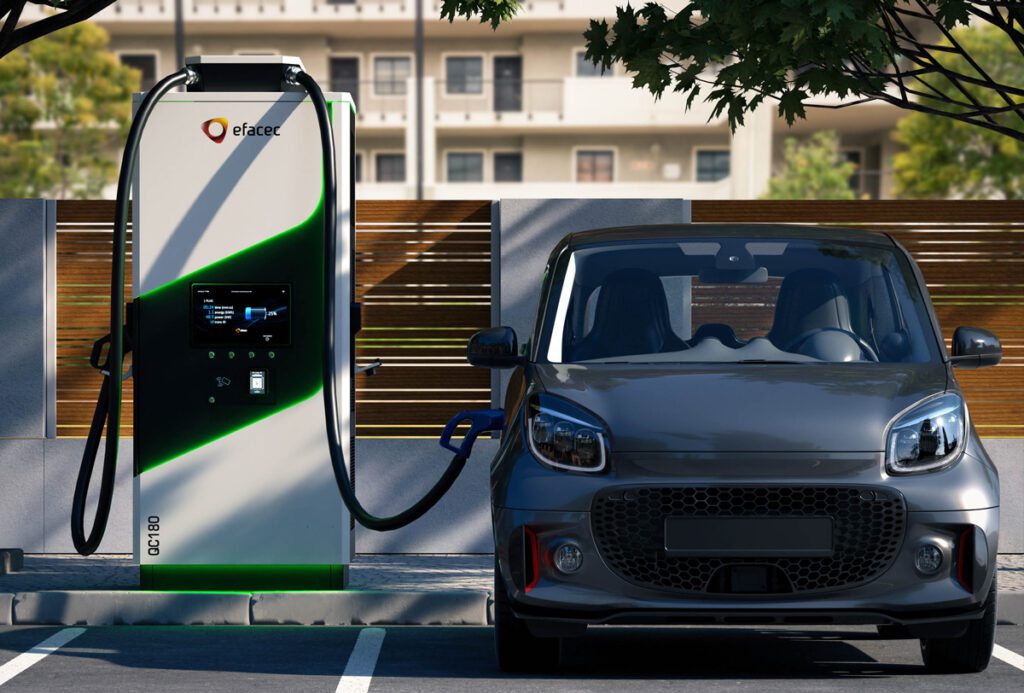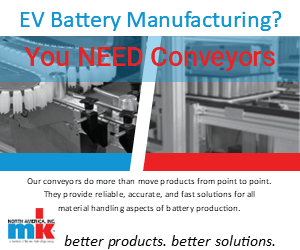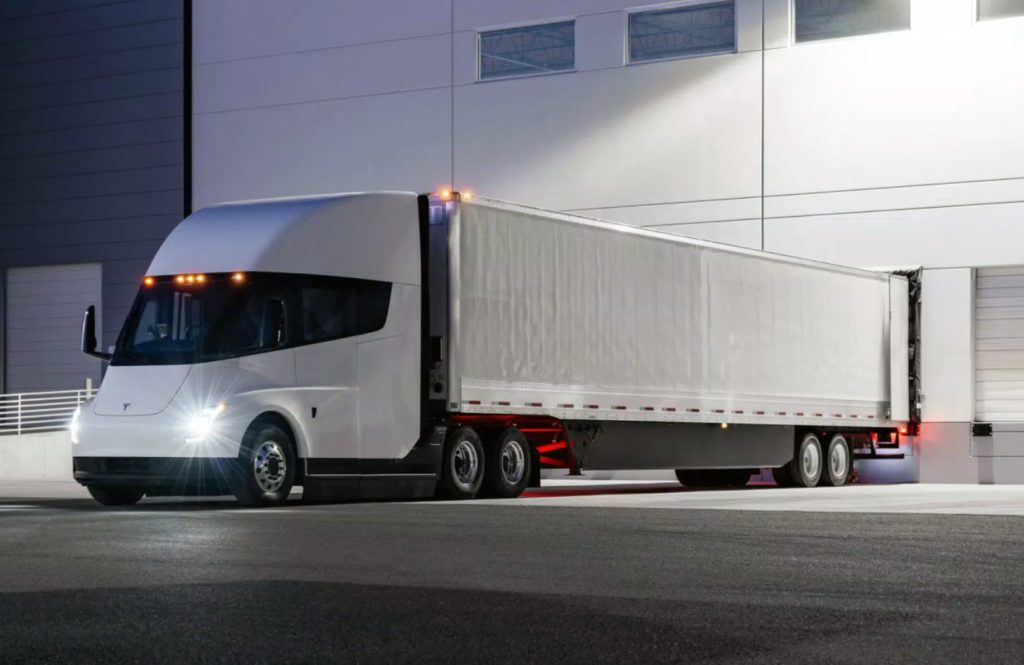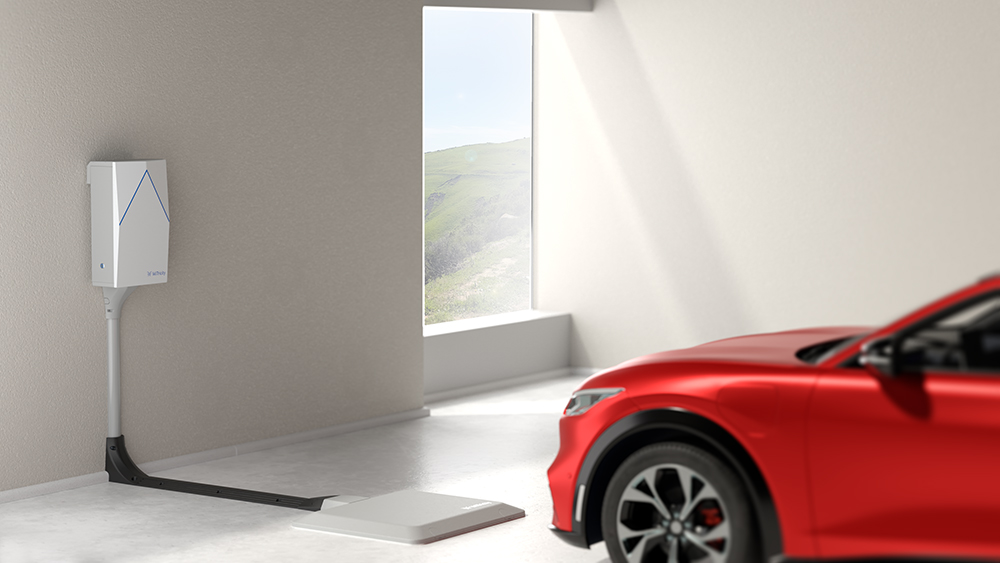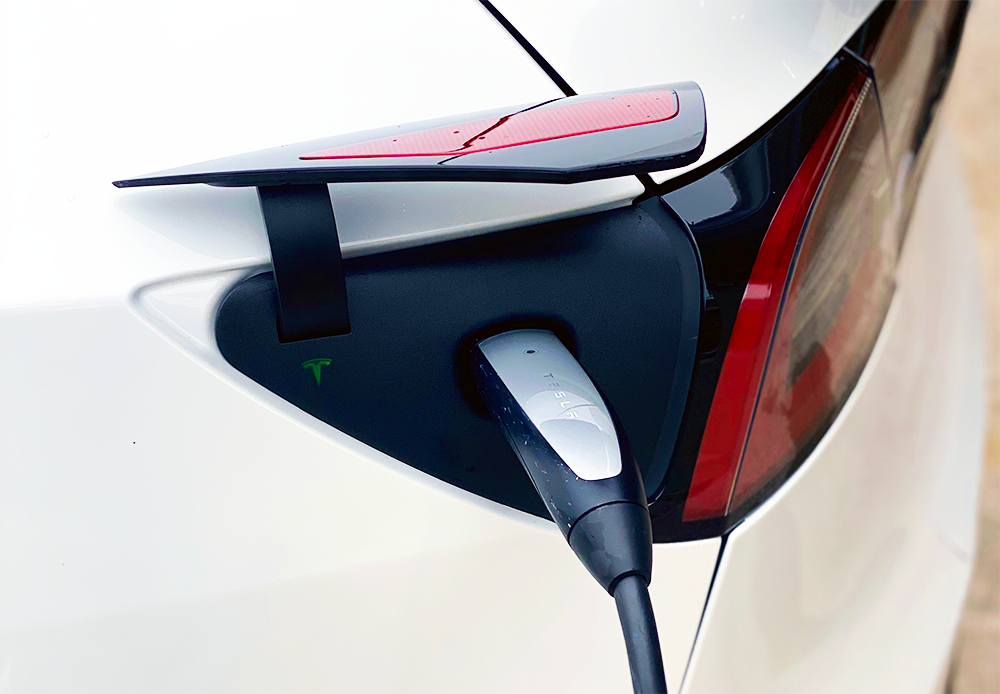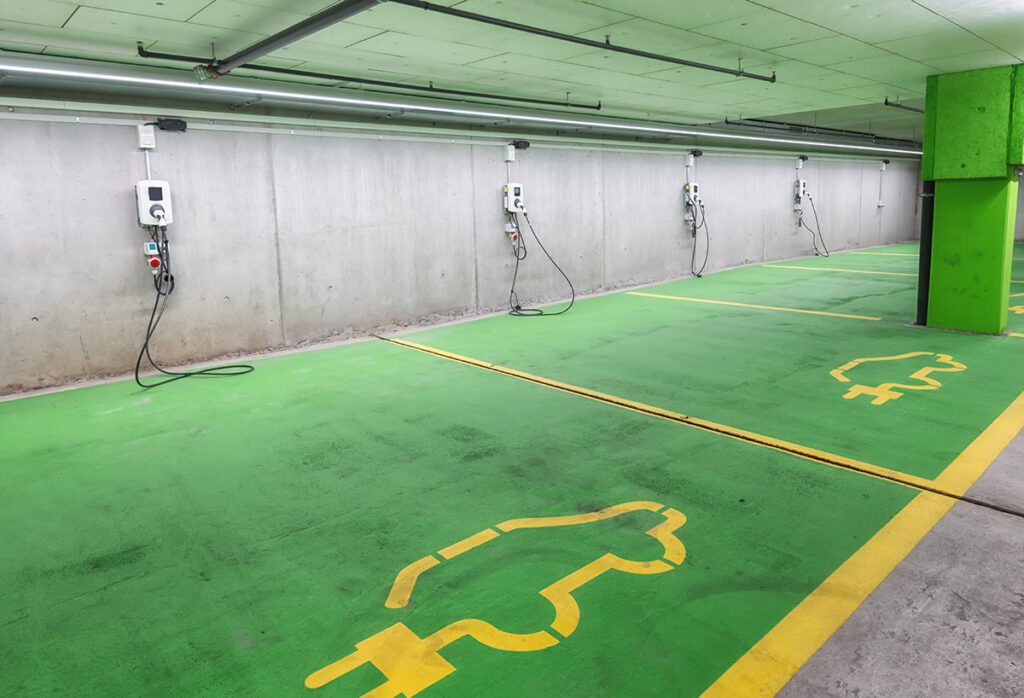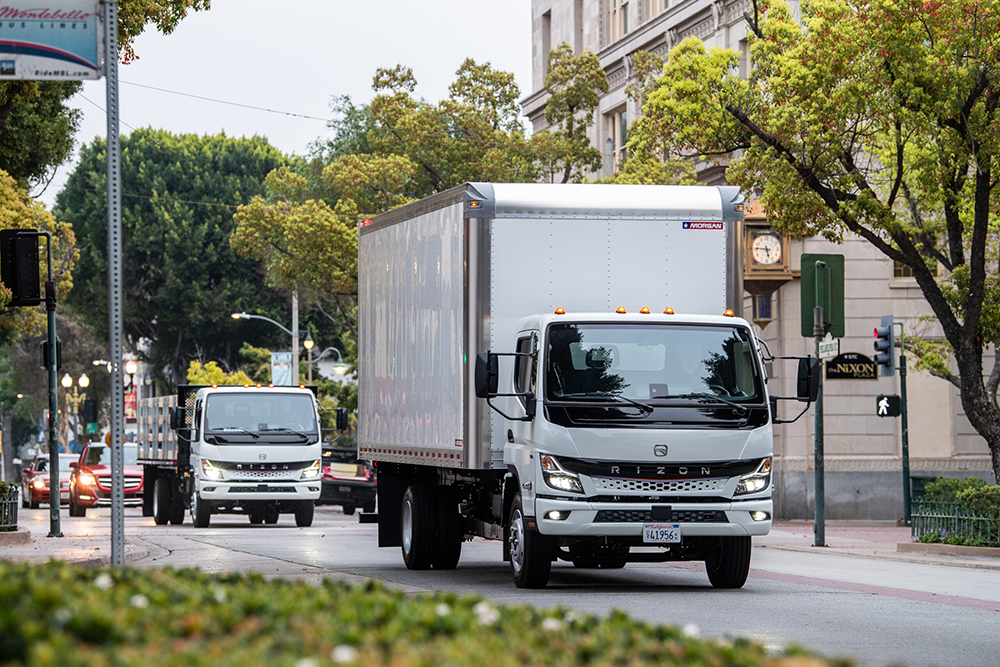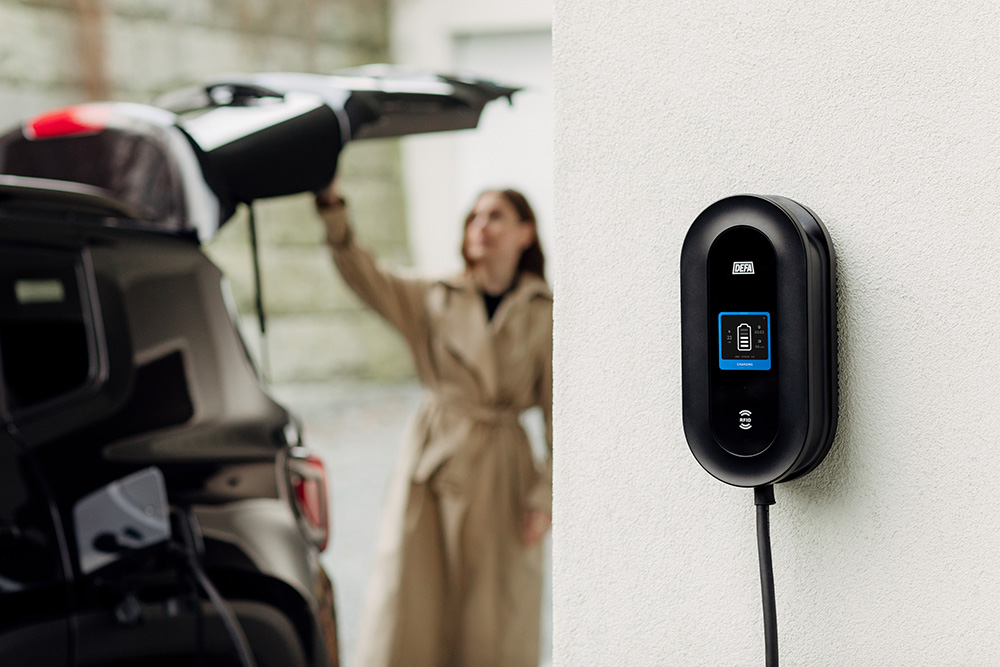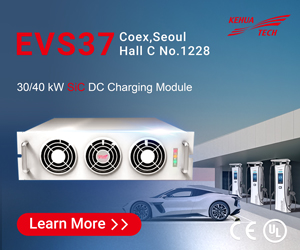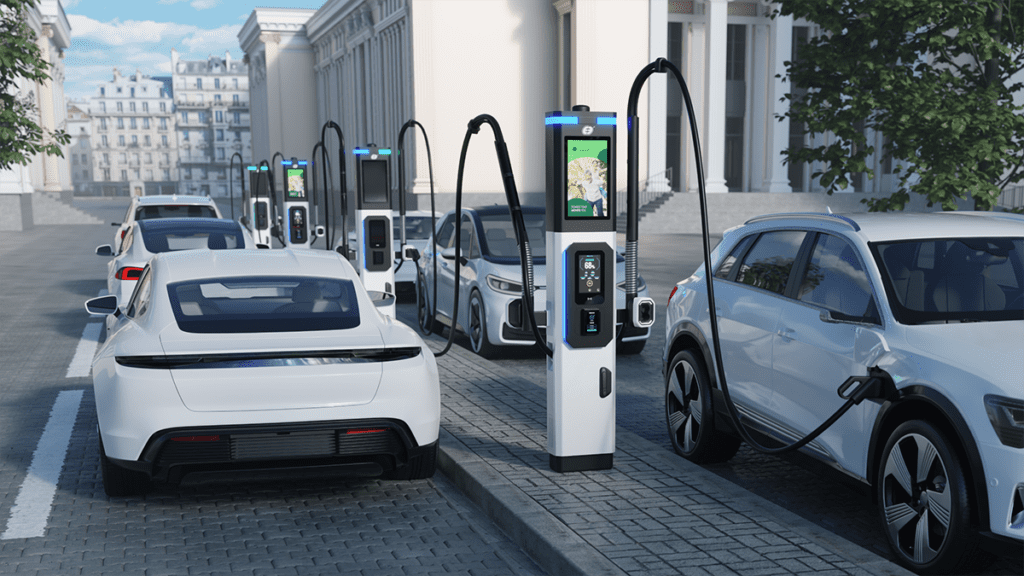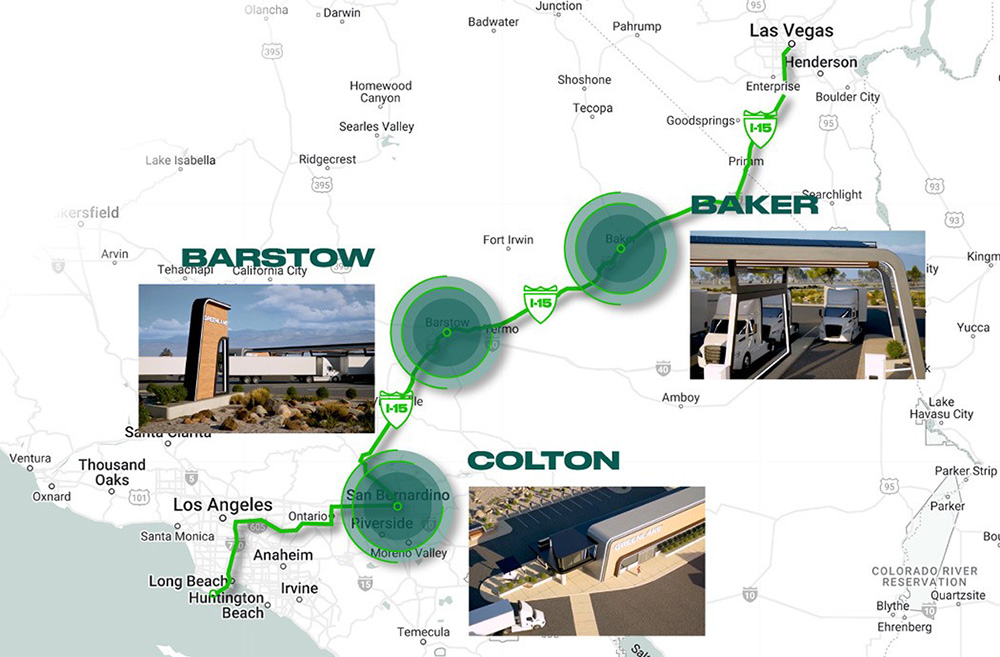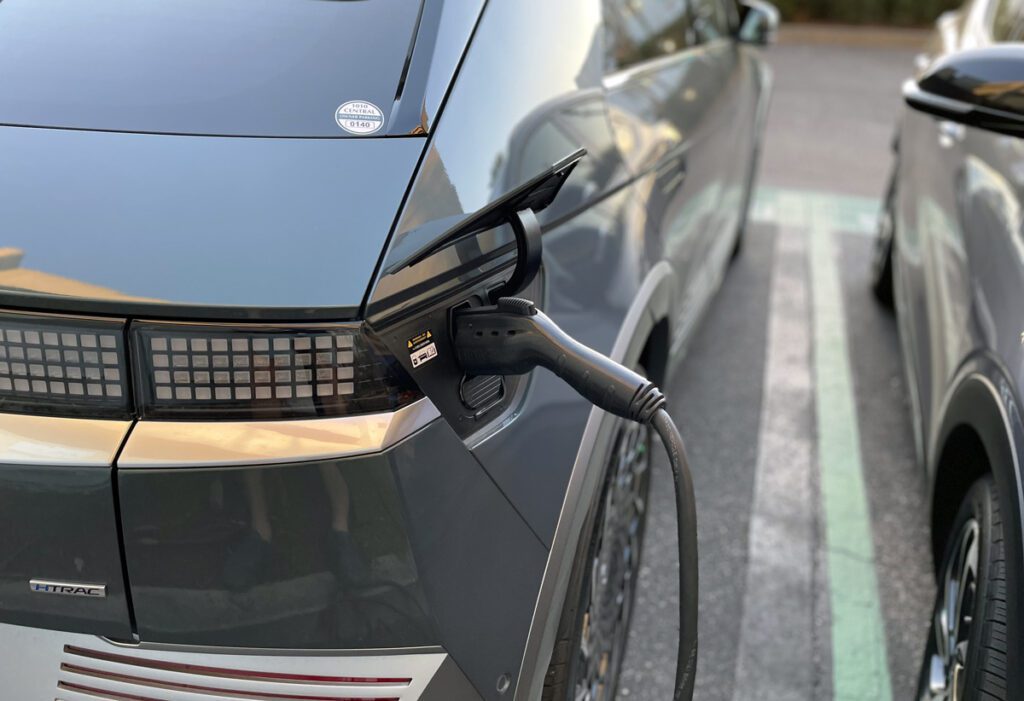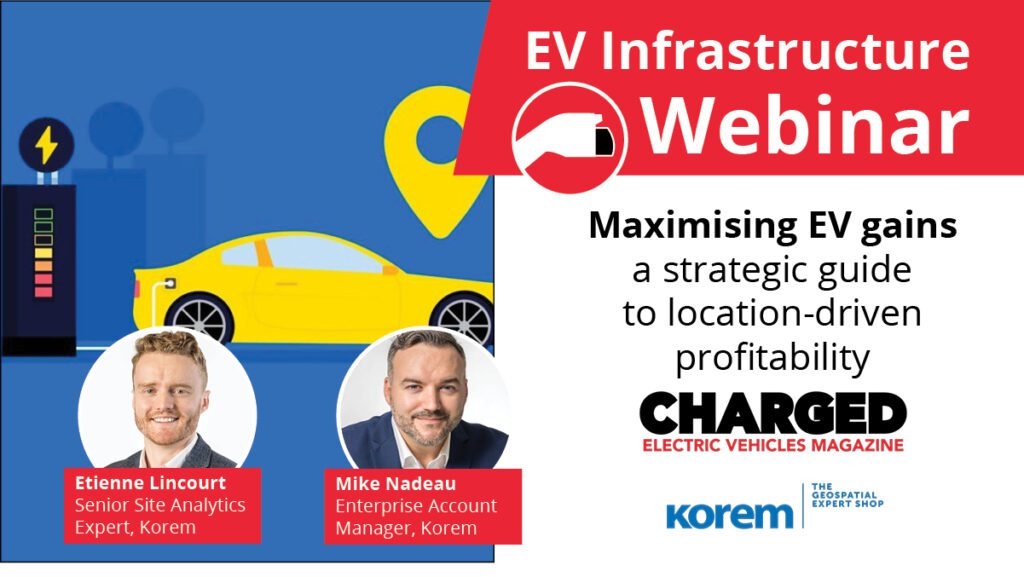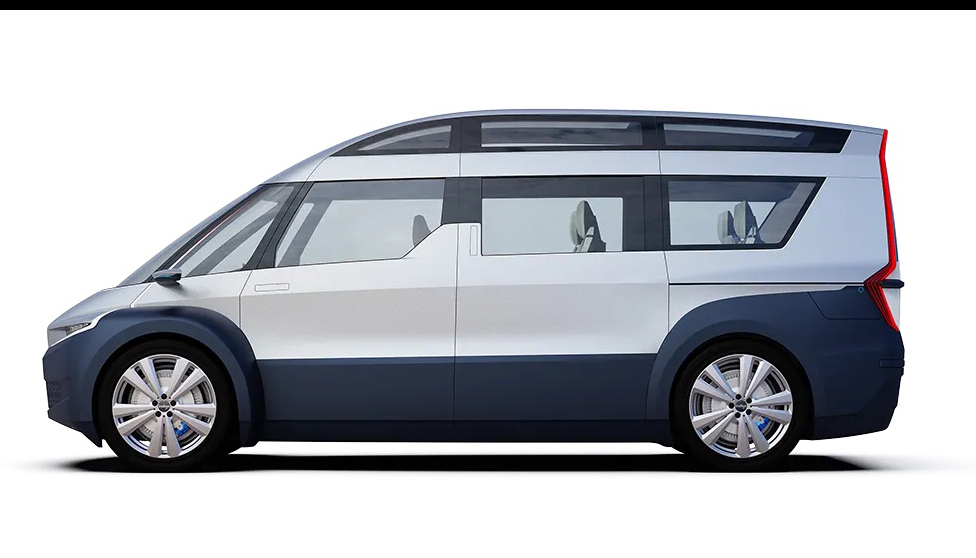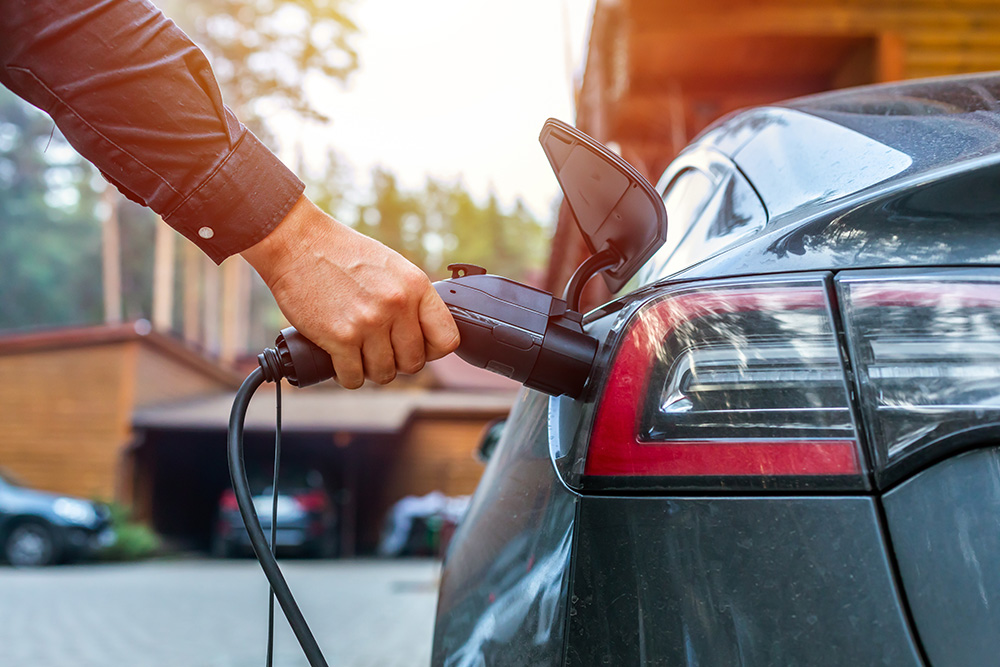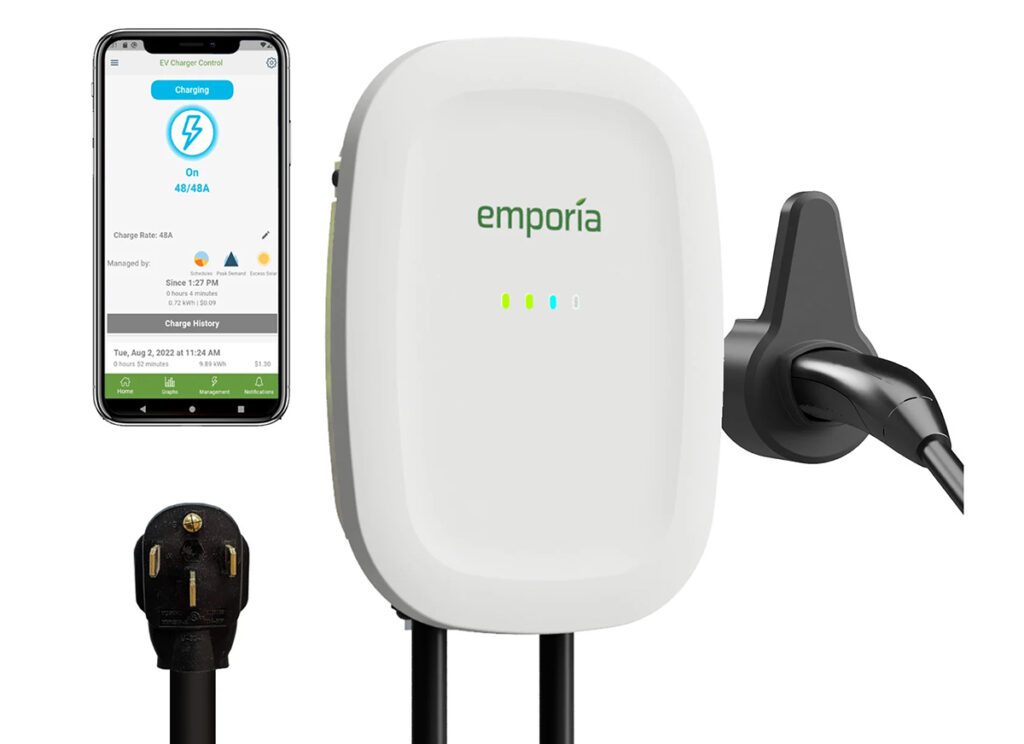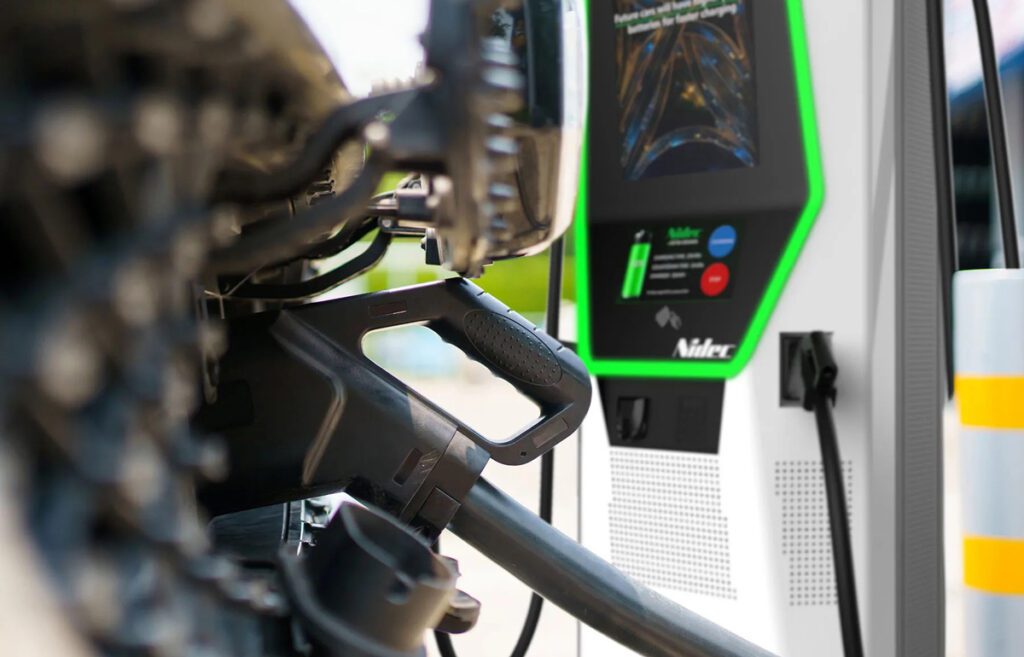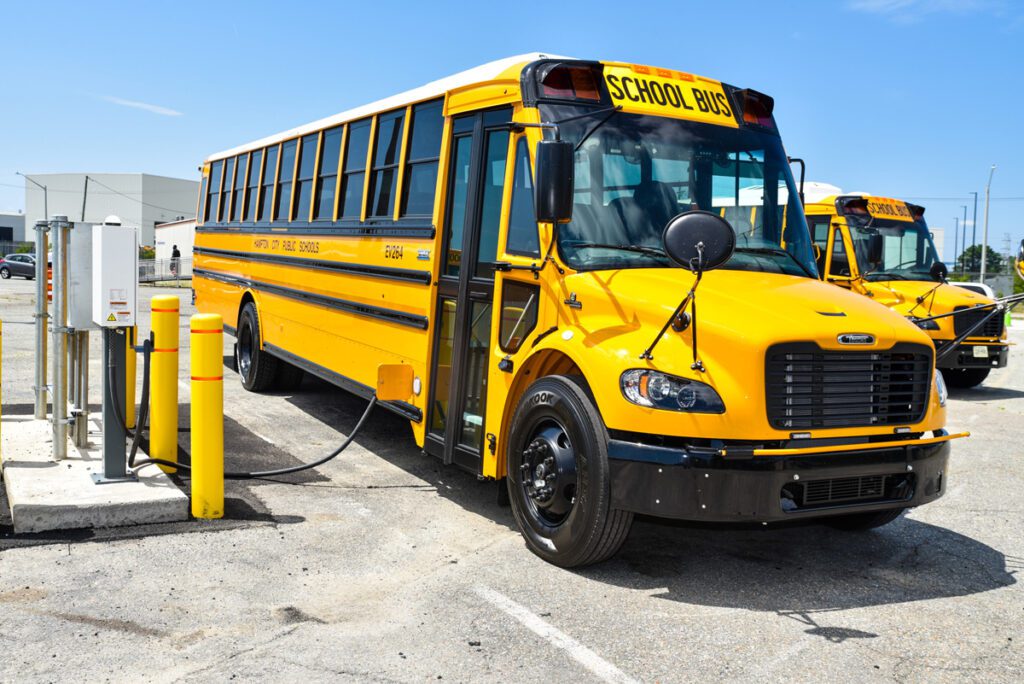- Most major retailers require that electrical products sold in their stores undergo third-party independent safety testing and certification, Amazon does not.
- After Charged encouraged the company to change its policy for EV charging stations, an Amazon spokesperson provided this official comment, “We monitor the products sold on our website for product safety concerns, and when appropriate, we remove the product from the website, reach out to sellers and manufacturers for additional information, place relevant warnings on the product detail page, or take other actions.”
- Currently, many charging stations that are not safety-tested and certified continue to be sold on Amazon.
Have you ever researched the safety certification of an appliance before buying it? I’ll admit, I have not. Hair dryers, space heaters, battery chargers – you name it. Without ever giving it much thought, I always assume that any product sold in the US will have some basic safety certification.
Typically, that’s a fair assumption, considering that most big-box retailers such as Wal-Mart, Best Buy and Home Depot require that products sold in their stores have the standard safety certifications for their category.
So, Charged was alarmed to learn that many of the best-selling EV charging stations on Amazon are not safety-certified.
The primary function of a charging station is to act as an electrical safety device, so there is potential for a big problem when the world’s largest online retailer is selling hundreds, if not thousands, of units that have not been sufficiently tested. With all the challenges that face the EV industry – including increasing pressure from other industries and politicians – playing fast and loose with safety is a risk that’s not worth taking.


When properly designed, tested and certified, charging stations are very safe. However, they are delivering a fairly large amount of power, so if a device is defective, failure modes can include serious shock hazards and catastrophic fires. In the past decade, there have been a handful of EV garage fires in the headlines, and long before investigations are concluded and root causes identified, the public relations damage is done.
Alarming search results
Charged first became aware of this issue in early January 2017, when we watched a video produced by ClipperCreek titled “EV Charging Station Buyer’s Guide Series: Staying Safe.” The company posted the video on YouTube in November 2016 as part of a video buyer’s guide series to help educate consumers about the ins and outs of charging stations.
The three-minute video explains why safety certifications are so important, and what certification marks to look for on products. The video shows a clip of what appear to be Amazon search results, and warns buyers that many of the charging stations available online are not certified.
We immediately headed over to Amazon and searched for “EV Charging Stations.” On that particular day, the product that sported the bright orange “Best Seller” ribbon was the Ebusbar BEV-H02A10, sold by a company called Evmiles. The level 2 charging station – manufactured in Shenzhen, China – had an Amazon star rating of 4.4 out of 5, based on 149 customer reviews.
Unfortunately, after some digging we found that the product has not been tested and safety certified by any of the accredited third-party testing labs. In fact, three out of the four top-selling options on Amazon that day were products without safety certifications.


Since early January, the Ebusbar product has been unavailable and then reemerged again for sale a few times. It’s currently not listed on Amazon, but there are other charging stations for sale today that are also not safety certified.
Customer reviews alone are a terrible indicator of safety
Regular Amazon shoppers rely heavily on its 5-star customer review system. And typically it works pretty well. If you’re in the market for a new book, iPhone case or office supplies, it’s a no-brainer to go with the product that has earned more stars, all other things being equal.
However, as we read through reviews of Amazon’s charging station selection, it became immediately clear that customers’ reviews are woefully inadequate at filtering out products that are sporadically defective.
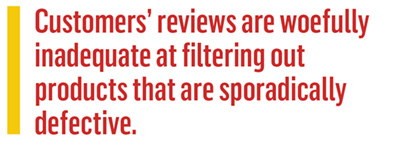

Charging stations need to work with dozens of different vehicles from many manufacturers, and the spectrum of different operating conditions varies wildly. That’s why exhaustive product testing is so important.
Imagine if a particular charging station has 499 5-star reviews and one 1-star review (the lowest rating). The average shopper will see an overall rating that is very high. However, if the one poor rating represents a customer whose charging station started a garage fire, statistically that’s a huge problem, when you consider how many charging stations are sold each month.
Unfortunately, this is exactly what we found on Amazon. There are charging stations for sale without safety certifications that have a high overall customer review rating and a handful of 1-star reviews claiming that the products operated very hot, worked for a while before acting up, and even burst into flames.
Exhaustive testing
In North America, UL 2594 is the primary standard for Electric Vehicle Supply Equipment. To ensure that a charging station adheres to the construction and operational guidelines in the standard, manufacturers will send samples to one of the Nationally Recognized Testing Laboratories (NRTLs), such as Intertek or Underwriters Laboratories (UL).
Safety engineers at these labs perform months of extensive safety testing. “We go through the standard line by line with many tests to ensure that the product complies in every way,” Dave Vanderlin, Staff Engineer at Intertek, told Charged. “We test to both construction and performance requirements of the standards. If we find any non-compliance, we issue a letter outlining what clauses of the standard it doesn’t comply with, and then the manufacturer has the opportunity to respond. Depending on the issue and what is done to correct it, we’ll determine what tests need to be resubmitted to make the product comply.”
Once a product passes all of the tests, the NRTL will issue the product its mark – for example, the familiar UL mark, or the ETL mark for Intertek. Only products which bear one of these marks, or the mark of another approved NRTL, on or near the rating plate, are safety-certified.
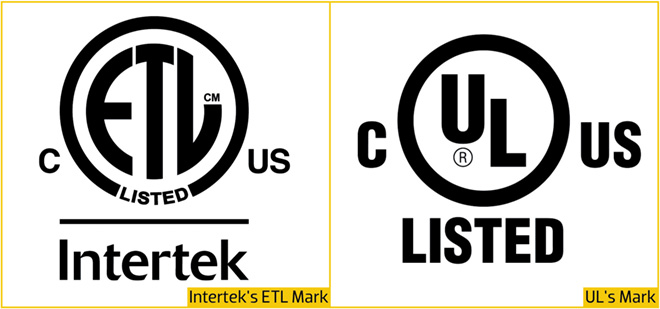

NRTLs will also inspect the charging station manufacturer’s factory four times a year to ensure the products being sold are constructed in the same manner as the samples that were tested. Changes cannot be made to the products without going back through the certification stages.
It’s quite an exhaustive process, but it’s absolutely critical in order to ensure that charging stations operate safely in every imaginable circumstance. That’s why most major retailers require it for all products sold in their stores – it protects them from liability claims. Also, most state and federal tax incentives are only available for safety-certified stations, and all the EV builders strongly recommend that you only use NRTL-certified charging stations with their plug-in cars.
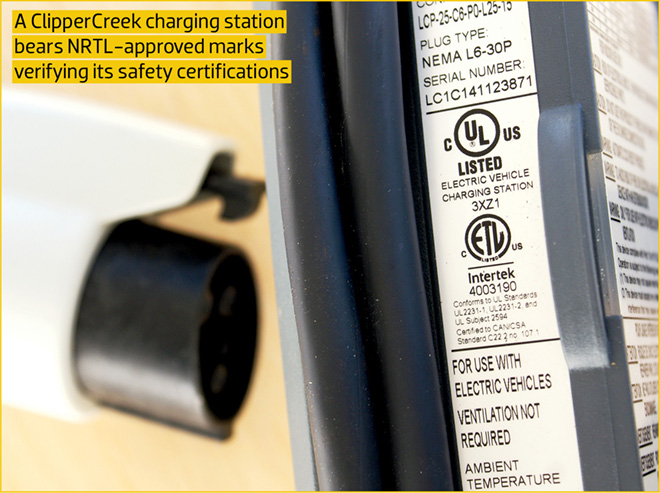

Codes and regulations
In the US, there are no federal regulations that require all electrical products to be safety-certified. However, there are different regulatory agencies that may require such things. For example, the Occupational Safety and Health Administration (OSHA) requires that any equipment workers are exposed to must be safety-certified.
“These requirements get implemented and enforced at the state or local levels by the Authority Having Jurisdiction, or AHJ,” Rich Byczek, Global Director of Business Development at Intertek, told Charged. “AHJs include agencies such as state OSHA officials, local building inspectors, fire marshals, etc. They’re the ones that decide whether or not an EV charging station needs to be safety-certified or not.”
Even if you live in an area where local ordinance requires a permit, and requires a safety-certified charging station to be installed by a licensed electrician, it’s really easy to skip that step with a do-it-yourself garage install. You can simply buy any product you want off the internet and install it without ever pulling a permit. “Unfortunately, there is minimal oversight or enforcement in a lot of these cases,” explained Byczek.
Safety awareness
Last year, ClipperCreek conducted a survey of potential customers to identify the most important features people are looking for when they shop for a charging station. “We were totally shocked to see safety certifications at the very bottom of the list,” said Suzanne Guinn, ClipperCreek’s Director of Marketing and Communications. “I don’t think it’s that people don’t care about safety, it’s that they take it for granted. When you buy an appliance in the US, it’s just assumed that it’s not going to shock you or start a fire.”
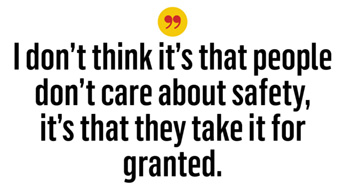

After seeing that safety ranked so low in the minds of buyers, ClipperCreek decided to produce its safety buyer’s guide video, to warn customers that there are many options available online that are not tested and certified. Not only are these available, it’s often very difficult to determine which products are certified and which are not.
While products that are certified will carry the mark of the NRTL that tested it, there is no clear indication on Amazon whether or not each product carries the mark. It’s up to each individual seller to include statements about certifications in the product description.
To make matters worse, products that are not safety-certified are often described with statements that mislead shoppers into thinking they have been tested. Phrases like “this product follows all EVSE standards,” or “this product was designed to and is compatible with international EVSE standards” can easily confuse a buyer.
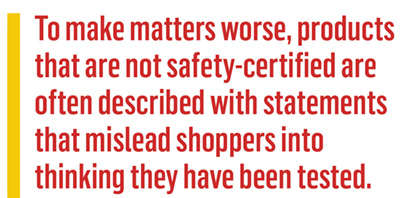

If those products were actually safety-tested and certified, the statements would read something like: “this product is safety-certified and listed by UL,” and would carry one of the NRTL-approved marks. The difference in wording is subtle, but hugely important.
It’s as if a car company were to claim, “We’ve designed this car to the highest safety standards,” but never actually sent the car to a government organization to crash-test it. The claim has never been verified, so who knows if the car is safe or not?
Pressure from the industry
When a charging station is tested and certified, the NRTL that issued its mark will list the product on a publicly-accessible web site. However, when we went looking for this information to compare it to the products available on Amazon, it was not a quick or easy process. It took about an hour for us to figure out where to find the right information and compile a list of all the safety-certified products listed on the Intertek and UL web sites. And on the web sites of other NRTLs, for example MET Laboratories, you can’t search for every product that’s been certified to the UL 2594 EV charging station standard. Instead, the site requires you to enter a listing number or brand name for each product one by one, which is even more tedious.
It’s totally unreasonable to assume that the majority of consumers will go through this process when shopping online for a charging station. So, it’s very important for the EV industry to pressure the majority retailers – like Amazon – to only carry products that are certified to be safe.
Charged contacted Amazon to encourage it to update its charging station policy. After we explained our concerns in detail and provided links to over a dozen charging stations listed on the site that are not safety certified, an Amazon spokesperson provided this official comment:
“Safety is among our highest priorities. We monitor the products sold on our website for product safety concerns, and when appropriate, we remove the product from the website, reach out to sellers and manufacturers for additional information, place relevant warnings on the product detail page, or take other actions.”
Unfortunately, approximately three weeks after we first reached out to Amazon there are still many charging stations for sale that have not been safety certified.


